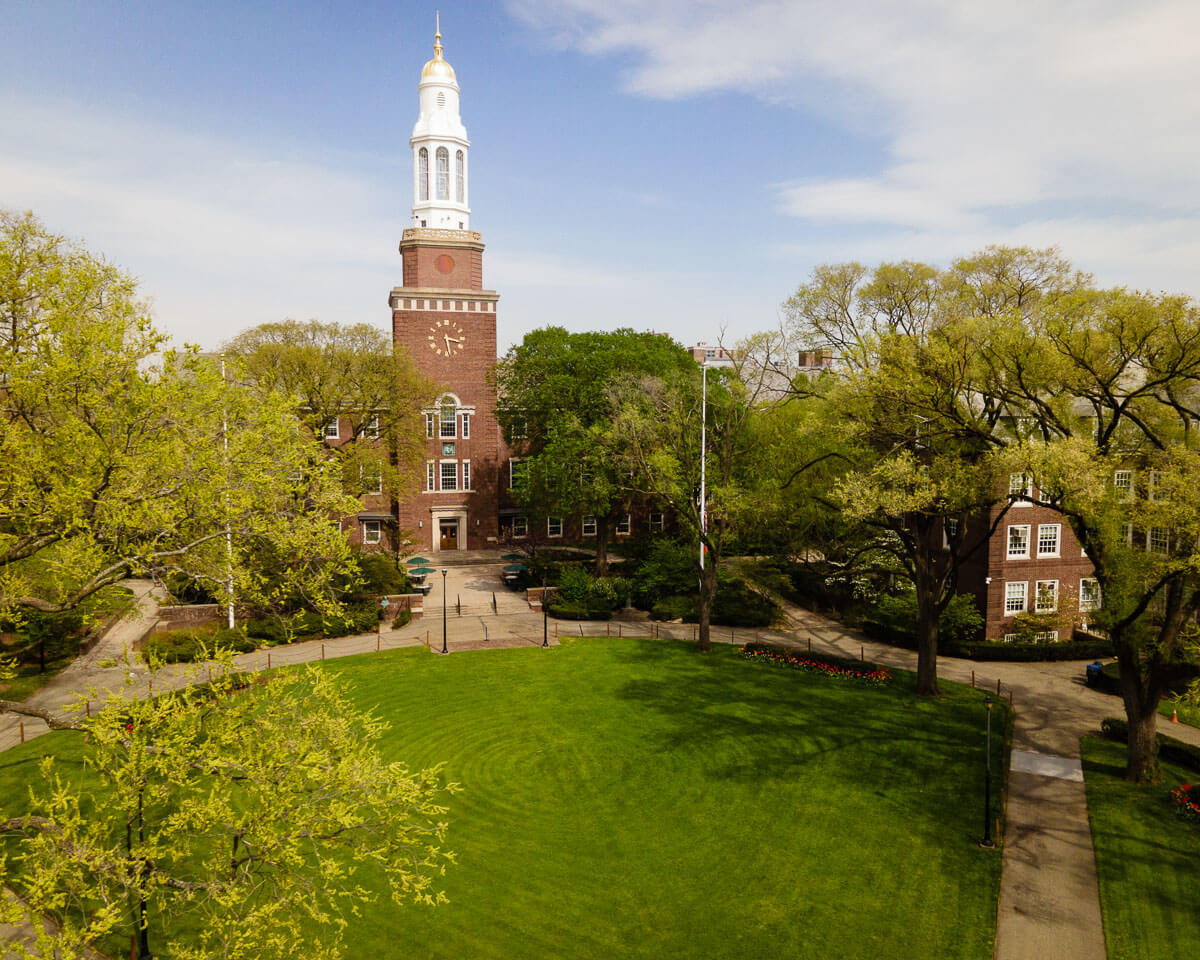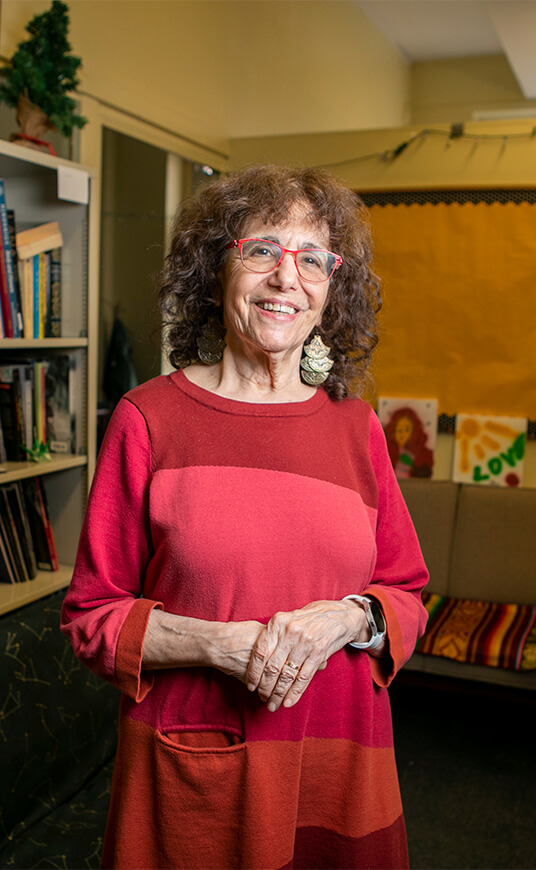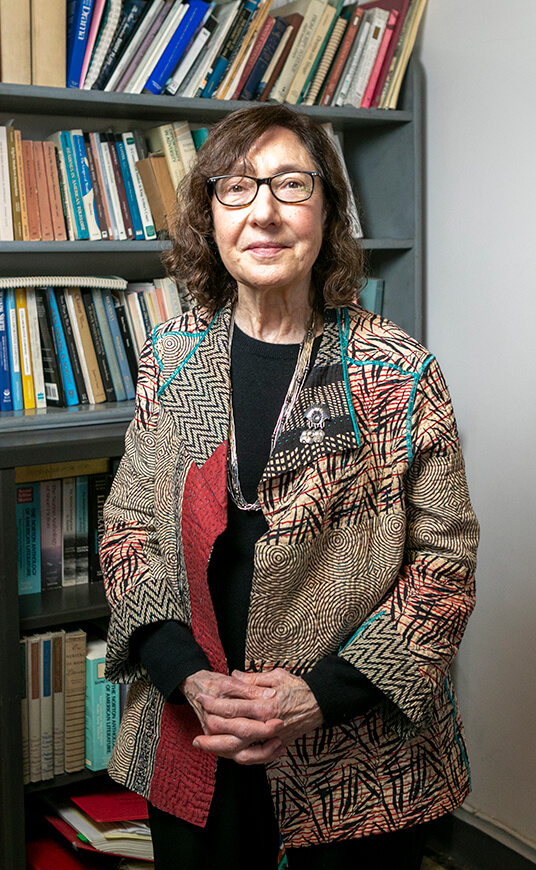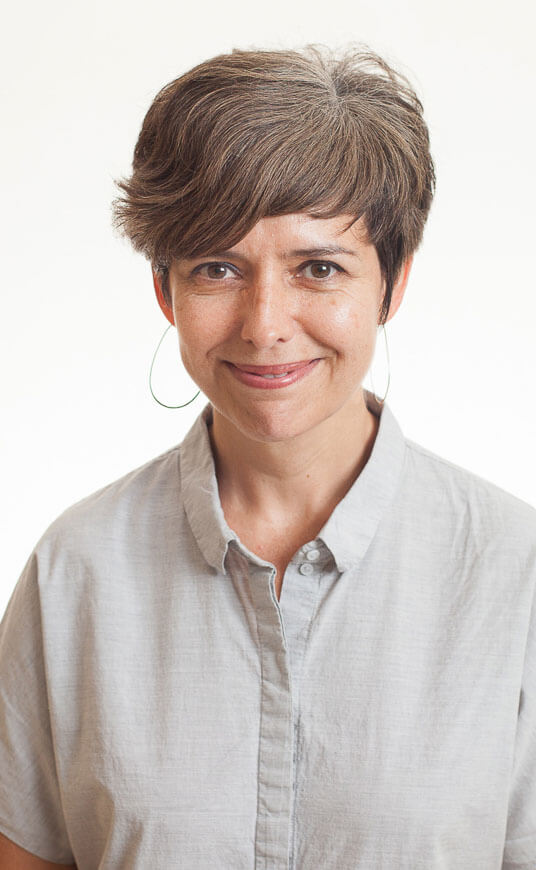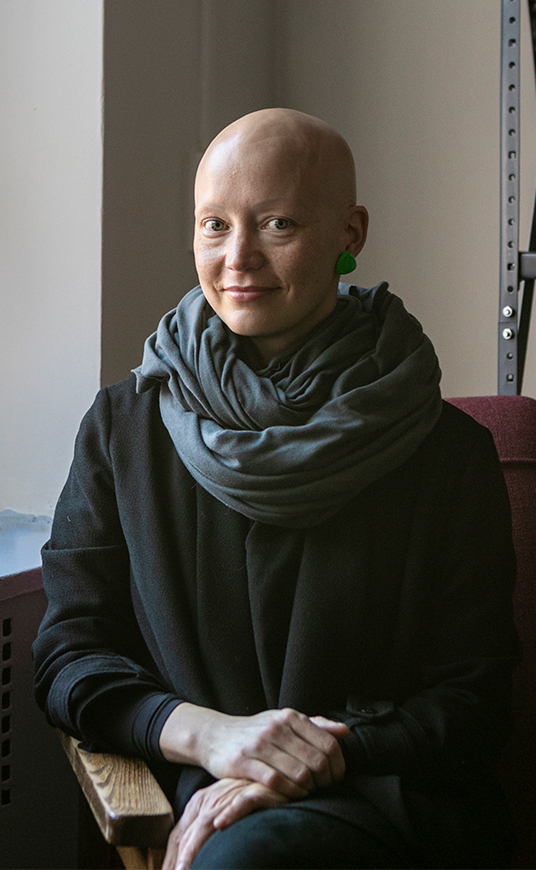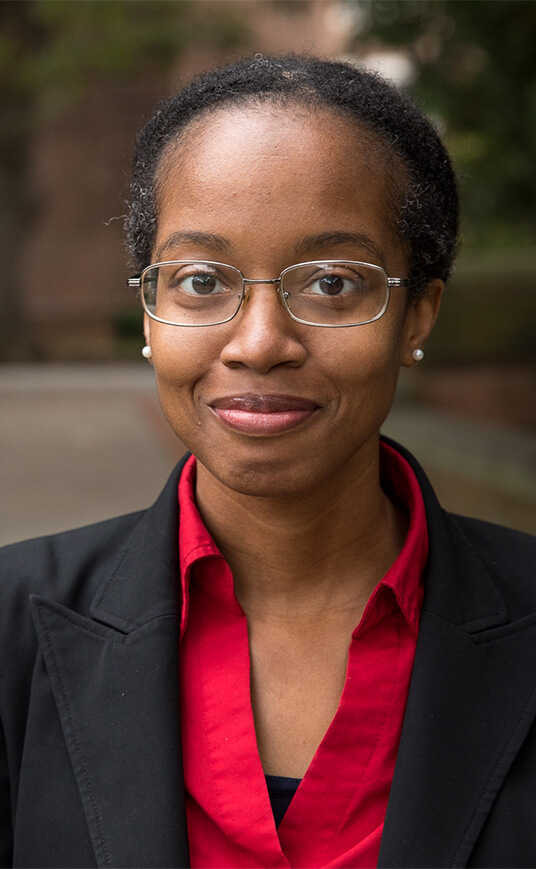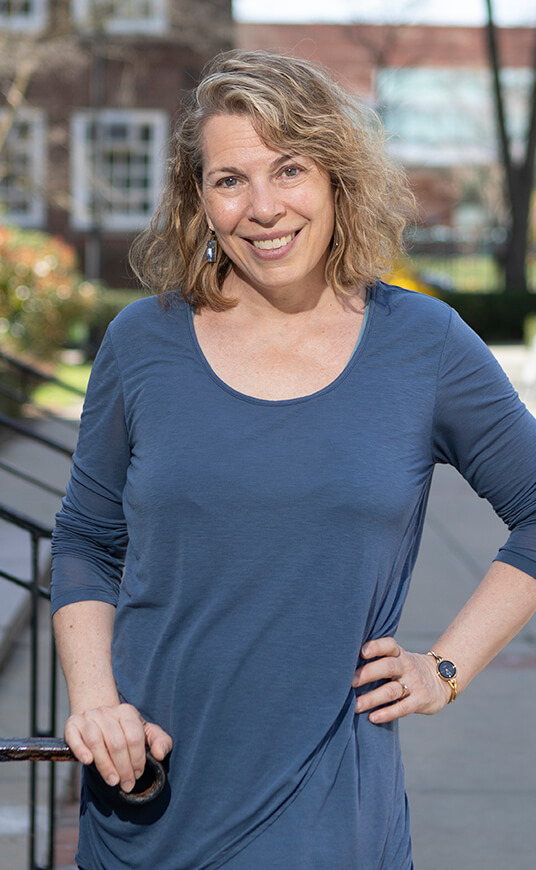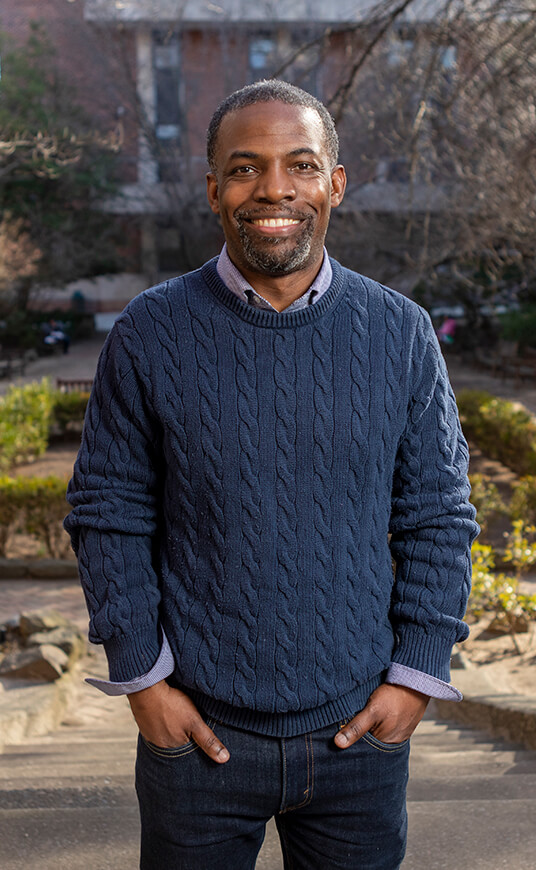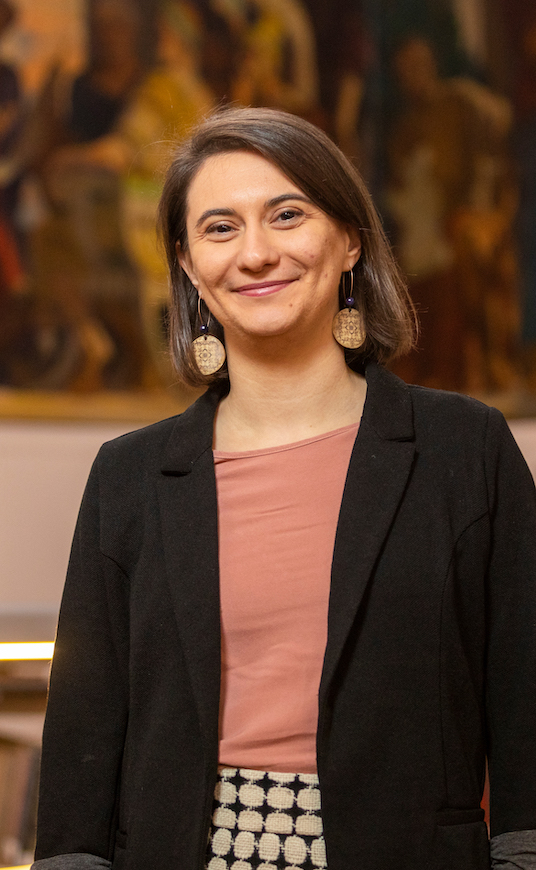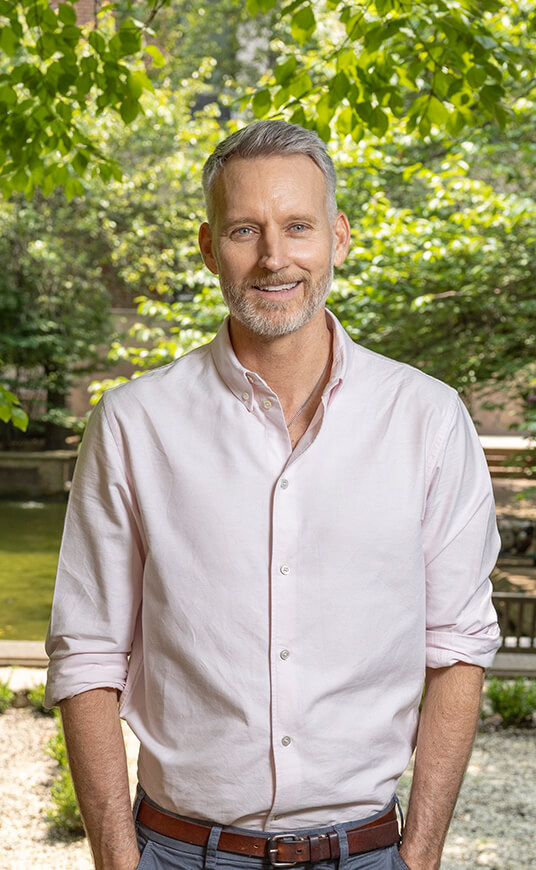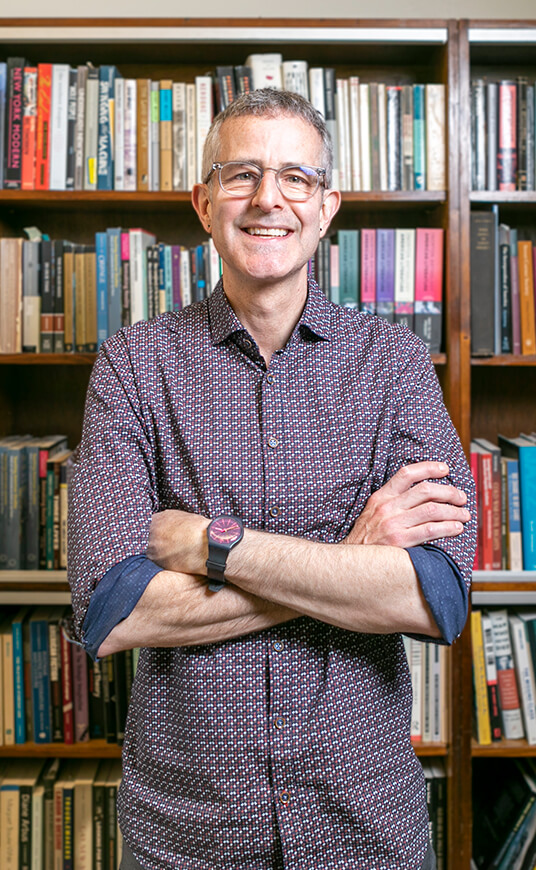Comparative Literature, B.A.
School of Humanities and Social Sciences
Program Overview
As a comparative literature major, you will engage with literary works across languages, borders, and historical periods, exploring the traditions and innovations of the literatures of the world. From novel to poetry, drama to film, monuments to political protest, comics to audio, urban space to visual culture, you’ll be introduced to texts and cultures in the broadest sense.
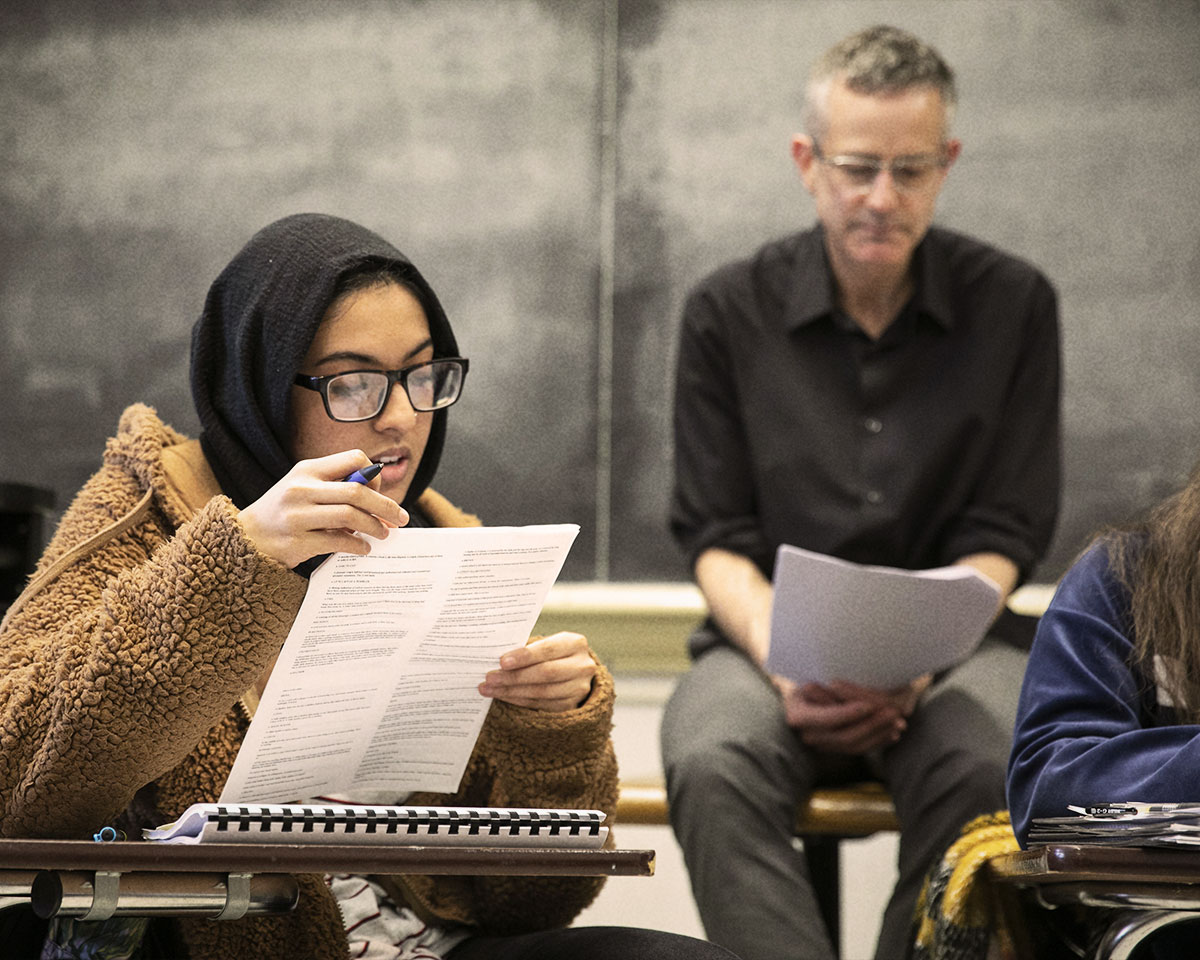
Major Details
The program information listed here reflects the approved curriculum for the 2024–25 academic year per the Brooklyn College Bulletin. Bulletins from past academic years can be found here.
Major Requirements (40-44 Credits)
I. English 2120 and 2121 (8 credits). English 2120 and 2121 are both required. Comparative literature majors should complete either English 2120 or 2121 or be enrolled in one or the other, before continuing in other electives. No ENGL course numbered lower than 2115 may count toward the major.
II. (12 credits) Three of the following: Comparative Literature 3614, 3615, 3616, 3617, 3618.
III. (7–8 credits) A total of two of the following courses chosen from two genres:
Other genres: Comparative Literature 3601, 3602, 3603, 3604, 3605, 3608, 3612, 3613, 3624, 3625, 3626, 3627, 3628, 3629.
IV. (3–4 credits) One of the following: Comparative Literature 3613, 3619, 3620, 3621, 3622, 3623, 3624, 3625, 3627, 3629, 3631 3632.
V. (4 credits) A 4000-level Comparative Literature or English literature seminar.
VI. (6–8 credits) At least six credits in literature courses numbered higher than 2010 in a classical or modern language.
Students who have successfully completed the Communication 1202 and Humanities 1204 seminars of the Special Baccalaureate Degree Program for Adults or Comparative Literature 11 or the approved equivalents for the latter automatically have the prerequisites for any advanced course in comparative literature.
Student Learning Outcomes
Department Goal 1: read and think critically
Program Objective 1. Learn to read literature in its historical context; identify characteristic styles and subject matter of different periods.
Program Objective 2. Learn to read through a variety of critical lenses.
Program Objective 3. Be able to carry out close readings of literary texts.
Department Goal 2: Understand how language operates
Program Objective 1: Be able to identify and demonstrate knowledge of literary terminology.
Department Goal 3: Express ideas—both orally and in writing—correctly, cogently, persuasively, and in conformity with the conventions of the discipline
Program Objective 1: Identify, write, and edit for currently accepted conventions of standard English mechanics, grammar, and style (including proper punctuation, subject-verb and noun-pronoun agreement, parallel construction, appropriate tense sequences and moods, etc.).
Program Objective 2: Learn and follow the conventions of literary argumentation, including formulating thesis statement, and conventions of quoting and citing textual evidence.
Program Objective 3: Learn how to rethink and revise essays.
Department Goal 4: conduct research
Program Objective 1: Learn to develop viable research questions and identify appropriate sources.
Program Objective 2: Learn to use library resources, including collections, databases, and archives.
Program Objective 3: Learn how to summarize and cite both primary and secondary sources in support of the argument.
Program Objective 4: Learn appropriate scholarly conventions, as explained in the MLA Manual of Style or the Chicago Manual of Style.
Program Objective 5: Learn how to avoid plagiarism by citing sources properly.
Degree Maps
To help you pursue your studies in the most efficient manner, and to maximize your efforts to graduate in four years, Brooklyn College has created four-year degree maps for all its majors.
View degree maps for this major and others.
Contact
Joseph Entin
2308 Boylan Hall
E: Jentin@brooklyn.cuny.edu
P: 718.951.5195
Martha Nadell
2314 Boylan Hall
E: mnadell@brooklyn.cuny.edu
P: 718.951.5197
Roni Natov, Majors Counselor
2308 Boylan Hall
E: RNatov@brooklyn.cuny.edu
P: 718.951.5374
Or contact:
Office of Undergraduate Admissions
222 West Quad Center
2900 Bedford Avenue
Brooklyn, NY 11210
E: adminqry@brooklyn.cuny.edu
To make an appointment with an undergraduate admissions counselor, visit:
The Support You’ll Find
Brooklyn College is an integral part of the cultural and artistic energy of New York City. Our faculty members in the Department of English offer incomparable expertise and tremendous talent, and each brings a unique perspective to their teaching and mentoring in and out of the classroom.
Internships and Employers
Through job fairs, the internship database, and internship panels, the Magner Career Center gives students in the comparative literature B.A. program access to career opportunities at a wide variety of employers, including:
- BookRags
- eNotes.com
- Southern New Hampshire University
- Upwork
